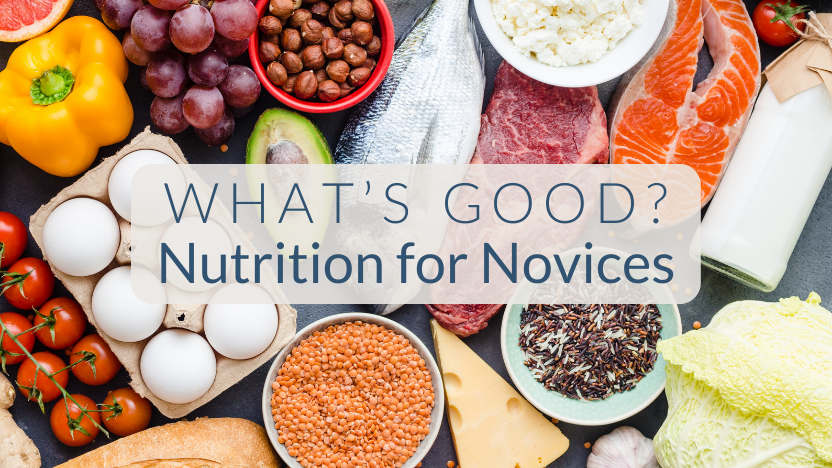Nutrition for Novices: Advice Backed by Science
Posted by EyePromise on Feb 22nd 2024
In researching nutrition, it can feel like there are tons of different and conflicting opinions. One person’s saying to cut all carbs, while another is telling you to cut out fat, and still another is telling you that both of those thought processes are wrong. The truth: everyone is different! You need to find what works for you in terms of diet and/or restrictions, but there are some key points to keep in mind as you plan your meals.
Avoid Ultra-Processed Foods.
One thing that nearly all nutritionists, dieticians, and trainers can agree on is that processed foods need to be reduced or eliminated from the diet. Sugar-sweetened and artificially sweetened beverages, processed meat, and red meat are all items you should try and avoid. Not only are these products not good for the waistline, but they can actually have negative effects on overall health.
This is supported by a meta-analysis published in March of 2022, whose results demonstrate that these types of “ultra-processed foods” may increase the risk of all-cause mortality. Examples of ultra-processed foods according to the study include:

- Energy and soft drinks
- Packaged snacks
- Cakes
- Biscuits
- Cookies
- Candies
- Pastries
- Packaged breads and buns
- Margarine
- Sweetened breakfast cereals
- Fruit yogurt
- Prepared meat, dairy, and/or pasta
- Poultry or fish nuggets
- Cheese
- Pizza
- Hot dogs
- Sausages
- Other reconstituted meat products
Looking for healthy recipes to try? Join our monthly recipe email subscribers!
Don’t Skip Breakfast.

Intermittent fasting has become an increasingly popular avenue for people looking to lose weight, and breakfast is the easiest meal to skip. However, in a meta-analysis published in 2019, those skipping breakfast have a 22% higher risk of developing type 2 diabetes than those who eat breakfast every day, even after researchers accounted for Body Mass Index (BMI). This data applies to those who skip breakfast every once in a while or every day, and the more participants skipped breakfast, the higher their risk. In fact, missing breakfast 4-5 times a week can increase the risk of type 2 diabetes by 55%!
Another scary statistic about skipping breakfast comes from a systematic review also published in 2019. Researchers found that people who routinely skip breakfast have a 21% higher chance of developing cardiovascular health concerns than people who eat breakfast every day. Additionally, they discovered that skipping breakfast regularly can increase the risk of all-cause mortality by 32%!
But what about those sugary processed cereals? Surely those must be avoided at all costs, right? Not necessarily! While it’s best to have breakfast with protein and fresh foods like eggs, Greek yogurt, fruits, and/or vegetables, having a bowl of breakfast cereal is better than skipping breakfast altogether, as noted in the above review.
Practice Moderation.

This is probably the piece of advice that is most important to developing and maintaining a healthy lifestyle. Moderation can help reorient your goals, remove any kind of shame, and keep your motivation. You’re out to dinner and you’d like to drink a soft drink with your meal. Moderation means you can have one but bookend it with glasses of water. You’re craving a sweet treat at the end of a long day. Have it! Just keep it to one and don’t make a habit of it.
Now, what if you don’t have the energy for your workout? Moderation says do what you can! You don’t have to push it every single time, but getting in some movement throughout the day is always beneficial. Try going for a walk or some light yoga instead.
Living a healthy lifestyle can feel overwhelming at times, but these three simple pieces of advice can help you get started and stay focused. What other pieces of advice have helped you stay on track with your healthy lifestyle? Comment below!

